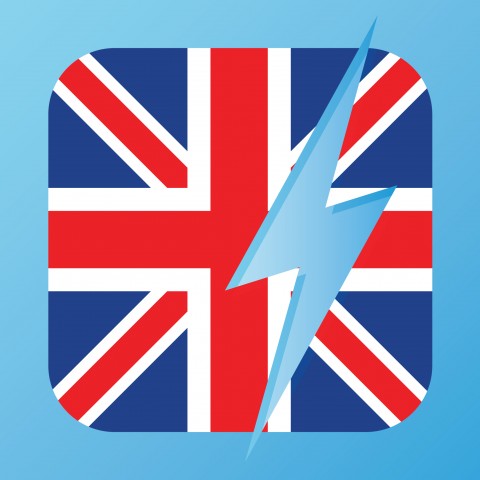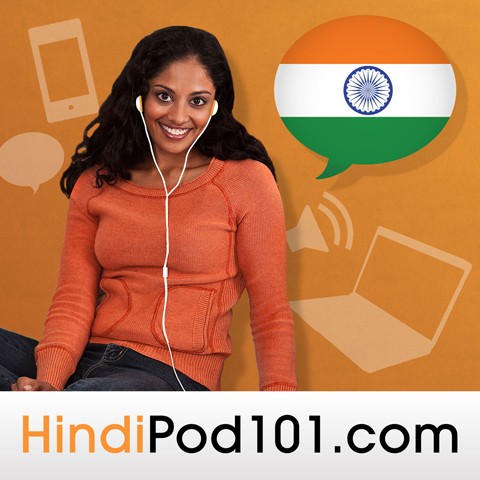
Who would have imagined that English words like “bundle,” “time-pass,” or “boss,” could mean anything other than what they’re supposed to mean?
In India, Hinglish—or the tendency of Hindi speakers to overuse English words while speaking—has become a thing! And it doesn’t stop there. These brain teasers often give non-natives quite a hard time, because the actual meaning of English words in Hindi is far different from the original definition.
Yeah, welcome to “Hindia“!

English Loanwords
 Table of Contents
Table of Contents
- Why Learn English Words Used in Hindi?
- The Birth of Hinglish
- Hinglish Words & Example Sentences
- Loanwords vs. Hinglish Words
- Famous Names Pronounced in Hindi
- English Words Derived From Hindi
- Become a Fluent Hindi Speaker with HindiPod101.com
1. Why Learn English Words Used in Hindi?
While Hinglish words may sound familiar to you as an English speaker, it’s important to remember that these words often have different meanings or nuances from what you’re used to.
If you don’t know the exact meaning of a Hinglish word, you’re likely to misunderstand the whole context of a conversation. And sometimes, even the seemingly simple English phrases spoken by the natives can be quite confusing for beginners.
In today’s lesson, we’ll look at the most common English words in Hindi, their literal meaning, and their actual meaning in the Indian context. But first, here’s a list of ways in which learning these popular hybrid words will benefit you!
- They will ensure you never miss a pun.
- They will make it easier to speak with natives.
- You will be able to understand the hidden affection or taunt in a word.
- You will feel like part of the group.
- You won’t accidentally offend or feel offended for the wrong reasons.
- They will eventually help you sound like a native! 😉
2. The Birth of Hinglish
So how exactly did English words become so prominent in Hindi?
In a broad sense, Hinglish history can be traced back to the time when India was the “golden bird” (SoNe kii cidiyaa) that everybody wanted to conquer. Over the centuries, many foreign countries have attacked and ruled the subcontinent. These countries include the British, the Portuguese, the French, the Mughals, and several others.
As a result, each civilization left an impression on the Indian culture. Indian society became a sponge, absorbing all of the elements impacting it and infusing them into its own culture. These influences are visible even today in what is presently known as the Indian Republic, be it in the way people dress, the way they eat, or the way they speak. Hinglish just happens to be the latest ‘thing’ on this list.
The name itself suggests that Hinglish is a combination of the Hindi and English languages. The younger generations in India have witnessed—and reasonably accounted for—the popularity of Hinglish in online chats, texting slang, and day-to-day conversations. However, the older generation has also (voluntarily) embraced its charm.

English Words with a Local Touch
3. Hinglish Words & Example Sentences
In this section, we’ll share with you several Hinglish examples so you can get a better idea of how Indians use English words in Hindi.
| 1. “Filmi” – फ़िल्मी (fiLmii) | |
| Hinglish Meaning | A person who is overreacting / A dramatic incidence |
| Actual English Meaning | Derived from the word “film” |
| In a Sentence | दुल्हन की विदाई के समय बिल्कुल फ़िल्मी माहौल हो गया था। DuLhaN kii viDaaii ke Samay biLkuL fiLmii maahauL ho gayaa THaa. “As the bride was leaving, the whole atmosphere became dramatic.” |
| 2. “Time-pass” – टाइम-पास (taaim-paaS) | |
| Hinglish Meaning | Not taking something seriously / Something that doesn’t interest you much |
| Actual English Meaning | “Passing the time” / “Hobby” |
| In a Sentence | आज वाली मूवी बस टाइम-पास थी। aaj vaaLii muuvii baS taaim-paaS THii. “Today’s movie was just okay.” |
| 3. “Number” – नंबर (Nambar) | |
| Hinglish Meaning | A multipurpose word that can mean “score,” “phone number,” “waiting number,” “chance,” etc. |
| Actual English Meaning | “Numeral” / “Phone number” |
| In a Sentence | अपना नंबर बता! apaNaa Nambar baTaa! “Give me your phone number.” |
| 4. “Bundle” – बंडल (baNdaL) | |
| Hinglish Meaning | A totally useless person you can’t count on |
| Actual English Meaning | A stack of things |
| In a Sentence | पुनीत एकदम बंडल आदमी है। puNiit ekaDam baNdaL aaDamii hai. “Puneet is a useless person.” |
| 5. “Hero” / “Heroine” – हीरो / हीरोइन (hiiro / hiiroiN) | |
| Hinglish Meaning | Can be used to praise or taunt someone (the latter when that person is trying to act smart) |
| Actual English Meaning | The lead actor/actress in a movie / A brave person who performs good deeds |
| In a Sentence | सीमा, तुम तो इस ड्रेस में एकदम हीरोइन लग रही हो! Siimaa, Tum To iS dreS men ekaDam hiiroiN Lag rahii ho. “Seema, you look so gorgeous in this dress.” |
| 6. “Puncture” – पंक्चर (pankcar) | |
| Hinglish Meaning | Mentally or physically exhausted |
| Actual English Meaning | A small hole in a tire or something else that’s inflated |
| In a Sentence | भीड़ और गर्मी से दिमाग़ पंक्चर हो गया। bhiid aur garmii Se Dimaag pankcar ho gayaa. “The heat and the crowd exhausted me completely.” |

Feeling “Punctured?” Oops… “Exhausted!”
| 7. “Junglee” – जंगली (jangaLii) | |
| Hinglish Meaning | Lacking in social manners |
| Actual English Meaning | Derived from the word “jungle” |
| In a Sentence | ये बच्चे तो बिल्कुल जंगली हैं। ye bacce To biLkuL jangaLii hain. “These kids are so mischievous.” |
| 8. “First-class” – फ़र्स्ट-क्लास (farSt-kLaaS) | |
| Hinglish Meaning | “Everything is perfect!” |
| Actual English Meaning | A rank / A division / A railway coach / A high-end airline class |
| In a Sentence | A: तबियत कैसी है? TabiiyaT kaiSii hai? “How are you feeling?” B: एकदम फ़र्स्ट-क्लास! ekaDam farSt-kLaaS! “Perfect!” |
| 9. “Thug-life” – थग-लाइफ़ (THag-Laaif) | |
| Hinglish Meaning | A life somebody is enjoying a lot |
| Actual English Meaning | A slang term for “criminal-life” or “a self-built person” |
| In a Sentence | कमल की तो थग-लाइफ़ चल रही है। kamaL kii To THag-Laaif caL rahii hai. “Kamal is enjoying his carefree life!” |
| 10. “Boss” – बॉस (bauS) | |
| Hinglish Meaning | Buddy / Friend |
| Actual English Meaning | A person’s direct superior in the workplace |
| In a Sentence | क्या हाल है, बॉस! kyaa haaL hai, bauS! “How are you, buddy?” |
| 11. “Solid” – सॉलिड (SauLid) | |
| Hinglish Meaning | Awesome / Perfect |
| Actual English Meaning | Something strong |
| In a Sentence | आज तो तुम एकदम सॉलिड दिख रहे हो। aaj To Tum ekaDam SauLid Dikh rahe ho. “Wow! You look amazing today.” |
| 12. “Lollipop” – लॉलीपॉप (LauLiipaup) | |
| Hinglish Meaning | Something to please someone or calm them down temporarily instead of giving them what they want / False promise |
| Actual English Meaning | A candy |
| In a Sentence | हर चुनाव से पहले नेता लोग जनता को कोई न कोई लॉलीपॉप दे देते हैं। har cuNaav Se pahaLe NeTaa Log jaNTaa ko koii Na koii LauLiipaup De DeTe hain. “Before every election, the political leaders try to woo the public with false promises.” |

“Hello, ‘boss’, how are you doing?”
| 13. “Picture” – पिक्चर (pikcar) | |
| Hinglish Meaning | Movie |
| Actual English Meaning | Photograph |
| In a Sentence | कल हम सब पिक्चर देखने जा रहे हैं। kaL ham Sab pikcar DekhaNe jaa rahe hain. “Tomorrow, we are all going to watch a movie.” |
| 14. “Would-be” – वुड-बी (vud-bii) | |
| Hinglish Meaning | Fiance |
| Actual English Meaning | A generic term used to describe a prospective/aspiring person or relationship |
| In a Sentence | आइये, आपको अपनी वुड-बी से मिलाता हूँ। aaiye, aapako apaNii vud-bii Se miLaaTaa huun. “Come here, meet my fiance.” |
| 15. “Heropanti” – हीरोपंती (hiiropanTii) | |
| Hinglish Meaning | Acting overly smart |
| Actual English Meaning | Derived from the English word “hero” |
| In a Sentence | ज़्यादा हीरोपंती मत दिखाओ। zyaaDaa hiiropanTii maT Dikhaao. “Don’t try to be a smart aleck.” |
| 16. “Pass out” – पास-आउट (paaS-aaut) | |
| Hinglish Meaning | Having graduated from a school/college |
| Actual English Meaning | To faint |
| In a Sentence | तुम किस कॉलेज से पास-आउट हो? Tum kiS kauLej Se paaS-aaut ho. “Which college did you pass from?” |
| 17. “Bheja-fry” – भेजा-फ़्राई (bhejaa-fraaii) | |
| Hinglish Meaning | Bored / Exhausted |
| Actual English Meaning | There’s no such word in English |
| In a Sentence | इतनी गर्मी में भेजा-फ़्राई हो गया। iTaNii garmii men bhejaa-fraaii ho gayaa. “It’s so hot, I’m exhausted!” |
| 18. “Good Name” – गुड-नेम (gud-Nem) | |
| Hinglish Meaning | Used to ask someone’s name in a polite way |
| Actual English Meaning | The actual way to ask is “Name, please?” |
| In a Sentence | आपका गुड-नेम क्या है? aapakaa gud-Nem kyaa hai? “What’s your name?” |
Now that we’ve looked at some unique Hinglish words, it’s time to talk about a similar (but distinct) topic: loanwords.
4. Loanwords vs. Hinglish Words
You may be wondering how loanwords are different from Hinglish words. Well, loanwords are words or phrases taken from a foreign language (English) and adapted by the target language (Hindi) while retaining their original meaning. Contrary to loanwords, Hinglish phrases are those which contain a specific meaning understood only by the local people. A Hinglish word may look like an English one, but its meaning is totally different.
 Learn Hindi with a Twist
Learn Hindi with a Twist
Nowadays, we Indians use countless English words in our daily lives. These words have become such an inseparable part of our language that we often forget we’re using English words at all!
The main reason for using English loanwords in Hindi is that the English word is often much simpler to pronounce than the Hindi word. For example, “train” in Hindi is लौहपथगामिनी (LauhapaTHagaamiNii). Imagine using this long phrase every time you wanted to say “train.” That doesn’t sound too practical, does it?
Some important English words in Hindi include:
- “bus” = बस (baS)
- “train” = ट्रेन (treN)
- “time” = टाइम (taaim)
- “copy” = कॉपी (kaupii)
- “coffee” = कॉफ़ी (kaufii)
- “juice” = जूस (juuS)
- “pen” = पेन (peN)
- “airport” = एयरपोर्ट (eyaraport)
- “bed” = बेड (bed)
- “inverter” = इन्वर्टर (iNvartar)
- “sandwich” = सैंडविच (Sandavic)
- “bread” = ब्रेड (bred)
- “internet” = इंटरनेट (iNtaraNet)
- “form” = फ़ॉर्म (faaurm)
- “phone” = फ़ोन (foN)
- “bathroom” = बाथरूम (baaTHaruum)
- “cooler” = कूलर (kuuLar)
- “TV” = टीवी (tiivii)
- “dining table” = डाइनिंग टेबल (daaiNing tebaL)
- “fridge” = फ़्रिज (frij)
- “handwriting” = हैंडराइटिंग (haindaraaiting)
- “station” = स्टेशन (StesaN)
Example Sentences:
- बस कितने बजे आएगी? (baS kiTaNe baje aayegii?)
“At what time will the bus arrive?”
- बाथरूम दाहिनी ओर है। (baaTHaruum DaahiNi or hai.)
“The bathroom is on the right side.”
- हमारा टीवी दो दिन से ख़राब है। (hamaaraa tiivii Do DiN Se kharaab hai.)
“Our TV has not been working for two days.”
- स्टेशन यहाँ से चार किलोमीटर दूर है। (StesaN yahaan Se caar kiLomiitar Duur hai.)
“The station is four kilometers away from here.”
- जूस फ़्रिज में रख दो। (juuS frij men rakh Do.)
“Keep the juice in the fridge.”
5. Famous Names Pronounced in Hindi
Pronunciation is the biggest difference between how English speakers and Hindi speakers say words. There are distinct characteristics in the way Indian people speak, especially when it comes to foreign brands, celebrity names, movie names, etc.

Pronouncing Famous Names in Hindi!
To get a better idea of the correct pronunciation of English words in Hindi, take a look at this list of famous celebrity, movie, and brand names and their Hindi equivalents.
- “Tom Cruise” = टॉम क्रूज़ (taum kruuz)
- “Beyonce” = बियॉन्से (biyaunSe)
- “Backstreet Boys” = बैकस्ट्रीट ब्वॉयज़ (baikaStriit boyz)
- “Arnold Schwarzenegger” = अर्नोल्ड श्वार्ज़नेगर (arNauLd svaarzaNegar)
- “YouTube” = यूट्यूब (yuutyuub)
- “Facebook” = फ़ेसबुक (feSabuuk)
- “LinkedIn” = लिंक्डइन (LinkdiN)
- “Titanic” = टाइटैनिक (taaitaiNik)
- “Mission Impossible” = मिशन इम्पॉसिबल (misaN impauSibaL)
- “Interstellar” = इंटरस्टेलर (intaraSteLar)
- “The Godfather” = द गॉडफ़ादर (Da gaudafaaDar)
- “Inception” = इंसेप्शन (iNSepsaN)
- “McDonald’s Burger” = मैक डॉनल्ड्स बर्गर (maik dauNaLdS bargar)
- “Nivea” = निविया (Niviyaa)
- “L’oreal” = लॉरिअल (LauriyaL)
6. English Words Derived From Hindi
You’re now familiar with the most common English words in Hindi—but it doesn’t end there! Did you know that there are several English words inspired by Hindi, too?

Waiting for the “bus”?
Here are some popular English words taken from the Hindi language:
- “Yoga” = योग (yog)
- “Mantra” = मंत्र (manTr)
- “Guru” = गुरु (guru)
- “Avatar” = अवतार (avaTaar)
- “Loot” = लूट (Luut)
- “Nirvana” = निर्वाण (Nirvaan)
- “Coolie” = कुली (kuLii)
- “Bungalow” = बंगला (bangLaa)
- “Chai” = चाय (caay)
7. Become a Fluent Hindi Speaker with HindiPod101.com
If you have any native Indian friends, you may have noticed them using a lot of Hinglish and English loanwords. Which words or phrases have you heard most frequently? Share them with us in the comments below. We’d also like to encourage intermediate learners to try making sentences with some of the words we’ve covered.
Did you know that we offer the best online Hindi language learning materials, including our comprehensive lesson on Hindi Pronunciation? If you’re ever uncertain about a word’s meaning, feel free to use our online Hindi-English dictionary or browse through our vast collection of vocabulary lists.

Come and learn with us. 🙂
Once you sign up for a Premium account, you’ll gain access to customized learning pathways specially designed for your needs, starting with the Hindi Basics. In order to learn 24/7, download our mobile app and start studying anywhere, anytime.
Happy learning, and have fun practicing your Hinglish!










